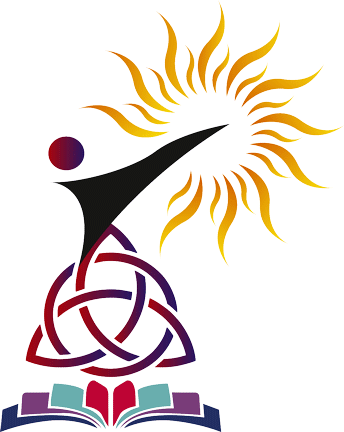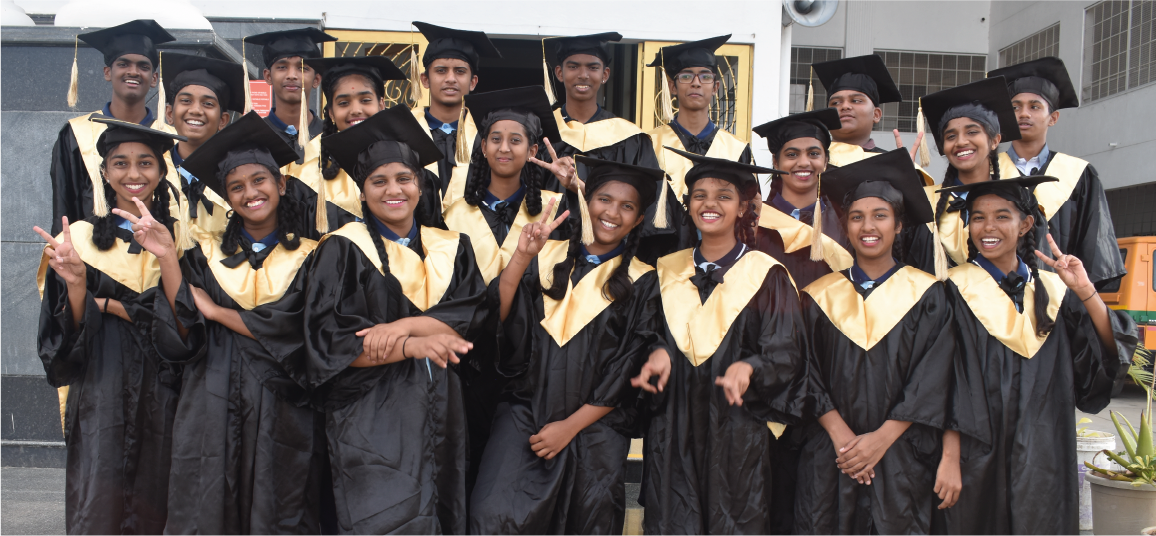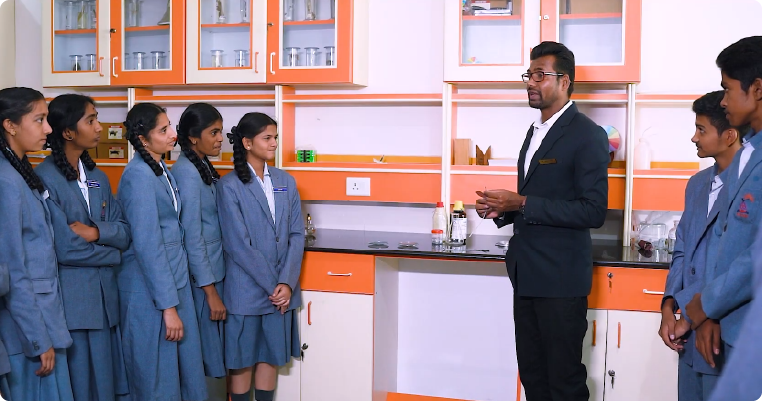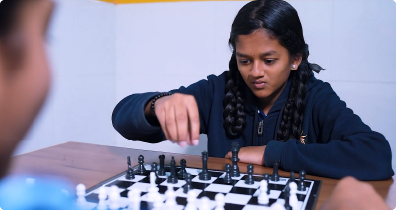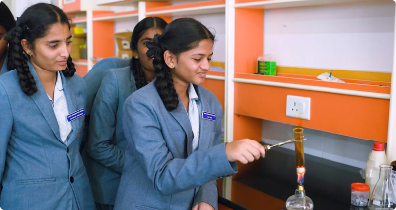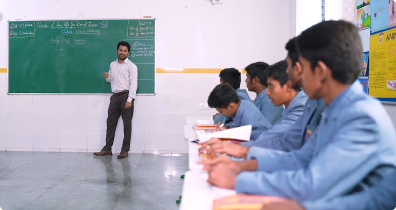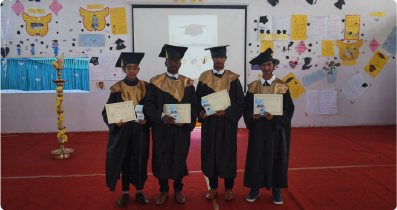Secondary School
At Anjanadri skills are integrated into the curriculum across subjects, allowing students to develop a well-rounded skill set that prepares them for higher education, career opportunities, and overall personal growth. Secondary school education focuses on imparting knowledge, fostering critical thinking, and nurturing skills necessary for success in a rapidly changing world.
Education Programs
Key skills that are emphasized in middle schools under the Central Board of Secondary Education typically include:
Key skills
-
Language and Communication Skills:
Enhancing proficiency in reading, writing, listening, and speaking skills in multiple languages, promoting effective communication, critical thinking, and expression. -
Analytical and Problem-Solving Skills:
Developing analytical thinking, problem-solving abilities, and logical reasoning across different subjects, encouraging students to analyze information, apply concepts, and find innovative solutions. -
Scientific and Technological Skills
Fostering scientific inquiry, experimentation, data analysis, and critical evaluation of scientific information, as well as promoting technological literacy, including proficiency in using software tools and understanding emerging technologies. -
Mathematical and Quantitative Skills:
Building on foundational mathematical skills, exploring advanced concepts in algebra, geometry, calculus, statistics, and data interpretation, developing mathematical reasoning, and problem-solving abilities. -
Information Literacy and Research Skills:
Equipping students with skills to locate, evaluate, and effectively use information from various sources, promoting research skills, organizing and presenting information, and cultivating a critical mindset. -
Social and Emotional Skills:
Promoting emotional intelligence, self-awareness, empathy, and responsible decision-making, developing interpersonal skills, conflict resolution abilities, and fostering a sense of social responsibility. -
Collaboration and Leadership Skills:
Encouraging collaborative work, teamwork, effective communication, and leadership skills, preparing students to work in diverse groups, manage conflicts, and take on leadership roles. -
Critical Reading and Writing Skills:
Enhancing reading comprehension, literary analysis, and critical writing skills, fostering the ability to analyze and interpret texts from various genres and express ideas coherently. -
Financial Literacy:
Introducing concepts of financial management, budgeting, saving, and investment, promoting responsible financial decision-making and understanding economic principles. -
Life Skills:
Equipping students with essential life skills such as time management, goal setting, problem-solving, decision-making, adaptability, and resilience, preparing them for personal and professional challenges.
Grade 9 & 10
Grade 9 Methodology & Curriculum
Anjanadri follows experiential learning & integrated learning where students engage in hands-on activities, projects, and real-life experiences to deepen their understanding of concepts. This approach encourages students to connect their learning with practical applications, fostering analytical and practical skills. Integrated learning, where different subjects are interconnected to provide a comprehensive understanding. This interdisciplinary approach helps students see the connections between subjects and promotes a holistic understanding of concepts.
-
Languages:
English, Kannada. The focus is on enhancing language skills, including reading comprehension, vocabulary, grammar, writing, and speaking skills. Students also work on developing effective communication and presentation skills. -
Mathematics:
Topics such as number systems, polynomials, coordinate geometry, linear equations in two variables, triangles, quadrilaterals, areas, circles, surface areas, volumes, statistics, and probability. The curriculum emphasizes problem-solving, logical thinking, and mathematical reasoning skills. -
Science:
Physics, Chemistry, and Biology. It covers topics such as motion, force and laws of motion, gravitation, sound, matter, atoms and molecules, structure of the atom, periodic classification of elements, basic concepts of chemistry, diversity in living organisms, cell structure and functions, and natural resources. The curriculum emphasizes scientific inquiry, experimentation, and critical thinking skills. -
Social Science:
Focuses on broadening students' understanding of society, history, geography, economics, and political science. It covers topics such as India and the contemporary world, contemporary India, resources and development, democratic politics, understanding economic development, and disaster management. The curriculum aims to develop an awareness of the world, critical thinking, and social studies skills. -
Information Technology:
Topics such as computer systems and organization, programming concepts using Python, data handling and database concepts, networking, and internet safety. The curriculum emphasizes computational thinking, problem-solving, and digital literacy. -
Art, Music, and Physical Education:
Students have opportunities to explore their creativity through art, engage in music activities, and participate in physical education classes to promote physical fitness, coordination, teamwork, and self-expression.
Grade 10 Methodology & Curriculum
Anjanadri follows experiential learning & integrated learning where students engage in hands-on activities, projects, and real-life experiences to deepen their understanding of concepts. This approach encourages students to connect their learning with practical applications, fostering analytical and practical skills. Integrated learning, where different subjects are interconnected to provide a comprehensive understanding. This interdisciplinary approach helps students see the connections between subjects and promotes a holistic understanding of concepts.
-
Languages:
English, Kannada. The focus is on enhancing language skills, including reading comprehension, vocabulary, grammar, writing, and speaking skills. Students also work on developing effective communication and presentation skills. -
Mathematics:
Topics such as real numbers, polynomials, pair of linear equations in two variables, quadratic equations, arithmetic progressions, triangles, coordinate geometry, trigonometry, statistics, and probability. The curriculum emphasizes problem-solving, logical thinking, and mathematical reasoning skills. -
Science:
Physics, Chemistry, and Biology. It covers topics such as electricity, magnetic effects of electric current, sources of energy, chemical reactions and equations, acids, bases and salts, metals and non-metals, life processes, control and coordination, heredity and evolution, and basic concepts of ecology. The curriculum emphasizes scientific inquiry, experimentation, and critical thinking skills. -
Social Science:
Focuses on broadening students' understanding of society, history, geography, economics, and political science. It covers topics such as India and the contemporary world - II, contemporary India - II, resources and development, understanding economic development, democratic politics - II, and disaster management. The curriculum aims to develop an awareness of the world, critical thinking, and social studies skills. -
Information Technology:
Topics such as computer systems and organization, programming concepts using Python, data handling and database concepts, networking, and internet safety. The curriculum emphasizes computational thinking, problem-solving, and digital literacy. -
Art, Music, and Physical Education:
Students have opportunities to explore their creativity through art, engage in music activities, and participate in physical education classes to promote physical fitness, coordination, teamwork, and self-expression.
